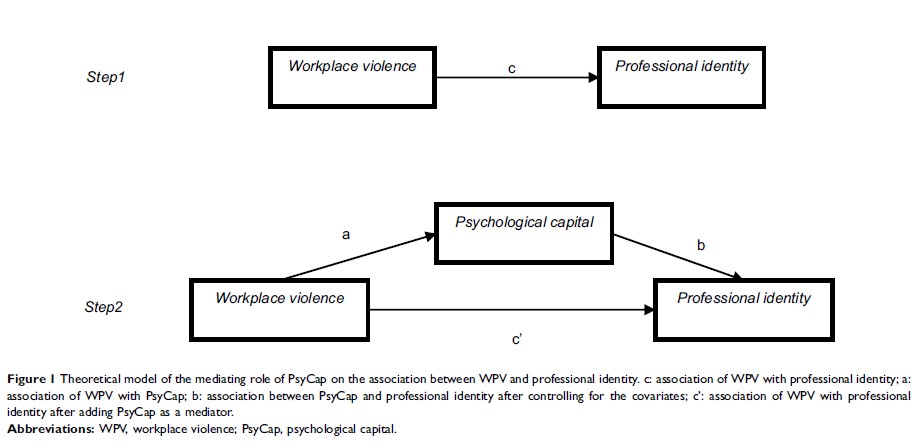108384
论文已发表
注册即可获取德孚的最新动态
IF 收录期刊
- 3.4 Breast Cancer (Dove Med Press)
- 3.2 Clin Epidemiol
- 2.6 Cancer Manag Res
- 2.9 Infect Drug Resist
- 3.7 Clin Interv Aging
- 5.1 Drug Des Dev Ther
- 3.1 Int J Chronic Obstr
- 6.6 Int J Nanomed
- 2.6 Int J Women's Health
- 2.9 Neuropsych Dis Treat
- 2.8 OncoTargets Ther
- 2.0 Patient Prefer Adher
- 2.2 Ther Clin Risk Manag
- 2.5 J Pain Res
- 3.0 Diabet Metab Synd Ob
- 3.2 Psychol Res Behav Ma
- 3.4 Nat Sci Sleep
- 1.8 Pharmgenomics Pers Med
- 2.0 Risk Manag Healthc Policy
- 4.1 J Inflamm Res
- 2.0 Int J Gen Med
- 3.4 J Hepatocell Carcinoma
- 3.0 J Asthma Allergy
- 2.2 Clin Cosmet Investig Dermatol
- 2.4 J Multidiscip Healthc

心理资本对中国医生工作场所暴力与职业认同之间关联的介导作用:横断面研究
Authors Qiu T, Liu C, Huang H, Yang S, Gu Z, Tian F, Wu H
Received 16 December 2018
Accepted for publication 18 February 2019
Published 26 March 2019 Volume 2019:12 Pages 209—217
DOI https://doi.org/10.2147/PRBM.S198443
Checked for plagiarism Yes
Review by Single-blind
Peer reviewers approved by Dr Colin Mak
Peer reviewer comments 2
Editor who approved publication: Professor Igor Elman
Background: Workplace
violence (WPV) and psychological capital (PsyCap) are linked to professional
identity, however, little research has examined how WPV is associated with
professional identity via PsyCap. This study is aimed to examine the
association between WPV and professional identity, and to further explore
whether PsyCap can serve as a mediator between WPV and professional identity
among Chinese doctors.
Materials and methods: A
cross-sectional study was conducted from November to December in Liaoning
Province in China, in 2017. The study used a questionnaire consisting of
Workplace Violence Scale (WVS), Occupational Identity Scale (OIS),
Psychological Capital Questionnaire (PCQ), as well as questions about
demographic characteristics. Out of 1200 doctors, 995 (effective response rate
of 82.92%) completed the questionnaire survey and became our final subjects.
Hierarchical multiple regression and the asymptotic and resampling strategies
were conducted to explore the mediating role of PsyCap in the relationship
between WPV and professional identity.
Results: After
adjusting for demographic characteristics, WPV was negatively associated with
professional identity (β=−0.37; P <0.01). Mediation analysis indicated that PsyCap
was a mediator in the relationship between WPV and professional identity. Two
dimensions of PsyCap: self-efficacy (a*b =−0.04, BCa 95% CI: (−0.08,
−0.01); P <0.01)
and hope (a*b =−0.04, BCa 95% CI: (−0.08, −0.01); P <0.01) also did
exhibit mediating effects in the relationship between WPV and professional
identity. The proportion of self-efficacy, hope and PsyCap mediation was
10.73%, 10.77%, 36.22% for professional identity respectively.
Conclusion: These
results provided evidence that PsyCap could mediate the association between WPV
and professional identity. To increase the level of professional identity,
positive interventions targeting PsyCap should be taken, with a focus on
self-efficacy and hope.
Keywords: professional
identity, workplace violence, psychological capital, Chinese doctors
